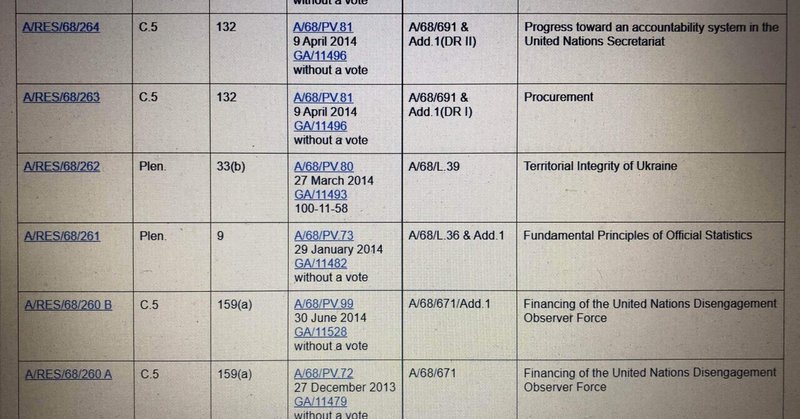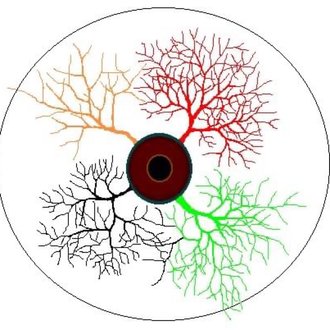
★我楽多だらけの製哲書(49)★~ウクライナ情勢とチャーチル(Ukraine situation and Churchill)~
(これから先、どのような展開になるかは分からないが、その展開を見てからの結果論で語りたくはないので、現在生じている問題に対して、衝動的・直観的・短絡的・短期的な捉え方ではないかという指摘を甘んじて受け入れつつ、国際法、特に経済制裁などを含めた安全保障について一時期は研究に取り組んだ自分としては、やはり何かしらのことを語っておきたい)
「始まってしまった」というべきか。
「始まるべくして始まった」というべきか。
そもそも「始まっていた」というべきか。
Should I say "it has started"?
Should I say "it started to start"?
Should I say "it was starting"?
ロシアによるウクライナ侵攻が本格的に開始となった。しかし、ロシアによる「強引な軍事介入、既成事実化、実質的に自国へ編入していく」という流れはこれが始めてではないはずである。
Russia's invasion of Ukraine has begun in earnest. However, this should not be the first time that Russia has forcibly intervened in the military, turned it into an established fact, and effectively incorporated it into its own country.
2014年のクリミア併合がこの出来事に先んじて起こっている。そのとき国際社会はどのように反応したのか。
国連は安全保障理事会(Security Council)で何らかの決議を行うことは常任理事国のロシアの反対、すなわち拒否権の行使により実現できなかった。そのため、国連総会(General Assembly)が「全ての国に対してウクライナの国家統一や領土保全を乱すことを目的とした行動をとらないこと」や「クリミア自治共和国で行われた住民投票(ロシアへの帰属を認めるもの)には有効性がないこと」などを決議しているが、安全保障理事会の決議が法的拘束力を持つのに対し、総会の決議には法的拘束力はなく勧告という効果に留まるものであったため、弱いものとなってしまった。


2014年3月27日の国連総会決議(A/RES/68/262)の内容を抜粋すると以下の通りであった。
Resolution adopted by the General Assembly on 27 March 2014 68/262. Territorial integrity of Ukraine
The General Assembly,
Reaffirming the paramount importance of the Charter of the United Nations in the promotion of the rule of law among nations,
Recalling the obligations of all States under Article 2 of the Charter to refrain in their international relations from the threat or use of force against the territorial integrity or political independence of any State, and to settle their international disputes by peaceful means, ・・・
1. Affirms its commitment to the sovereignty, political independence, unity and territorial integrity of Ukraine within its internationally recognized borders;
2. Calls upon all States to desist and refrain from actions aimed at the partial or total disruption of the national unity and territorial integrity of Ukraine, including any attempts to modify Ukraine’s borders through the threat or use of force or other unlawful means;
3. Urges all parties to pursue immediately the peaceful resolution of the situation with respect to Ukraine through direct political dialogue, to exercise restraint, to refrain from unilateral actions and inflammatory rhetoric that may increase tensions and to engage fully with international mediation efforts;
4. Welcomes the efforts of the United Nations, the Organization for Security and Cooperation in Europe and other international and regional organizations to assist Ukraine in protecting the rights of all persons in Ukraine, including the rights of persons belonging to minorities;
5. Underscores that the referendum held in the Autonomous Republic of Crimea and the city of Sevastopol on 16 March 2014, having no validity, cannot form the basis for any alteration of the status of the Autonomous Republic of Crimea or of the city of Sevastopol;
6. Calls upon all States, international organizations and specialized agencies not to recognize any alteration of the status of the Autonomous Republic of Crimea and the city of Sevastopol on the basis of the above-mentioned referendum and to refrain from any action or dealing that might be interpreted as recognizing
any such altered status.
ロシアのクリミア併合という現状変更に対して、国際社会からは、さらなる軍事のオプションがなさそうであり、司法も直接的な問題点を指摘せず(2017年4月の国際司法裁判所の決定では、ロシアに対して、クリミア・タタールの民族組織「メジュリス」の活動を再開させること、クリミアにウクライナ語での教育を保障することを命令などに留まっている)、経済についても死活問題ではなく耐えられる状態になって、政治としては非難声明が虚しく響くだけであった。
最初の行動の方が国際社会にとってはインパクトが強いものであり、「ゼロ」から「イチ」になったという事実を野放しにはできないと真剣に対応すると見ていたところ、軍事も司法も経済も政治もロシアにとって本気で撤退をしなければならないと思わせるものではなかったことになる。
ということは、今回のウクライナ東部での動きは、「イチ」から「ニ」のようなもので、完全に国際社会の及び腰が見透かされてしまっていたと言えるのではないだろうか。この間にロシアの影響力をクリミアから取り除くことができなかったのはコロナの影響であるというのは方便に過ぎないのではないだろうか。
国際法の原則には、「不法から法は生じない(ex injuria jus non oritur)」というものがある。クリミア併合も、今回の侵攻も、後々既成事実として扱われてしまっては、法は声が大きく力のある者のための都合の良い道具でしかなくなってしまう。国際法の原則にはもう一つ「事実の存在が法を生む(ex factis jus oritur)」というものもあるが、こちらはあくまでも多くの国の国家実行が法的信念(法的確信)を伴い積み重ねられたときに、それが法となっていくものだと思う。クリミア併合や今回の侵攻のように、単独の国の強引な現状変更を正当化する原則であってはならないのである。
2014年のクリミア併合から今回の侵攻に至る流れは、かつてのナチス・ドイツに対する宥和政策と同じ轍を踏んでいるように私には見えてしまう。
1936年のラインラント進駐、1938年のオーストリア併合そしてチェコスロバキアのズデーテン地方併合(編入)など、ナチス・ドイツの動きに対して、イギリスをはじめとするヨーロッパ各国は、その行動を事実上容認する「宥和政策」をとった。1938年の9月、ズデーテン地方の問題を話し合うために開かれたミュンヘン会談後に、イギリスの首相であったネヴィル・チェンバレンは次のような発言をしている。
「チェコスロバキアの問題は無事に解決しましたが、それは大きな問題の解決に至る序曲にすぎません。全ヨーロッパの平和への序曲です。」
しかし、その序曲は平和ではなく戦争に向かっていった。この宥和政策の評価は分かれており、これによってナチス・ドイツの侵攻を鈍らせ、時間的な猶予をイギリスは確保して、本格的な戦争の準備ができたとポジティブな評価もあるが、私はナチス・ドイツに足元を見られてしまったのではないかと思っている。
この後、イギリスの首相となったウィンストン・チャーチルは、著書『第二次世界大戦回顧録』の中で、次のように述べ、宥和政策が戦争の拡大につながったというネガティブな評価をしている。
「先の大戦(第二次世界大戦)は防ぐことができた。早い段階でヒトラーをたたき潰していればその後のホロコーストもなかっただろう」
また、チャーチルは次のような言葉も残している。
「歴史から教訓を学ばぬ者は、過ちを繰り返して滅びる。」
よく「歴史は繰り返される」と言われることがあるが、それを歴史は似たような事象が生じるメカニズムを抽出できるものであるというような達観したもので終わらせることなく、チャーチルがいうように歴史から教訓を学び取り、二度と同じような悲劇が起こらないように予防に努めるものとして行動に繋げることが重要であると私は考える。これが「終わりの始まり」になってしまわないことを願うばかりである。
It is often said that "history is repeated", but as Churchill says, it does not end with the idea that history can extract the mechanism by which similar events occur. I think it is important to learn lessons from history and take action as an effort to prevent the same tragedy from happening again. I just hope that this does not become the "beginning of the end".
ここから先は

我楽多だらけの製哲書
日常の出来事と哲学を掛け合わせた考察をつれづれなるままに綴っています。先哲の思想は、昔のことだし抽象的で近寄りがたいと思っている人がいるか…
この記事が気に入ったらサポートをしてみませんか?
